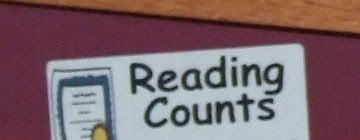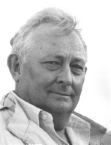
You don't have to burn books to destroy a culture. Just get people to stop reading them. Ray Bradbury
Would you like to contribute a book or library review to this blog?
Many of the readers I know, including me, enjoy recommending books to others that they themselves have enjoyed reading. Recently I read and have been recommending to others The Five People that You Meet in Heaven by Mitch Albom. I am hoping that someone among you would like to write a review for this blog about that book. All I will say about it is that it is a short novel, engaged me totally, and warmed my heart. My wife like it; it was a Christmas from me. A niece of ours, who is a senior, at Texas A&M in College Station, Texas, liked it. Others must like it as well; Albom has sold 7,000,000 copies of it.
Besides recommending books, reviews may be written about other books/reading/library/Internet related topics. Please see information below.
Guidelines for writing reviews for this blog:
- Length of review should be 350- 750 words, more or less.
- Reviews may be edited by me for length or clarity.
- Reviews should be about books that you like and would recommend to others.
- Reviews may be about features. facilities, resources, or services that you particularly like about the library.
- Reviews may be about book/reading related Internet sites that you recommend.
- Reviews should support reading and library use.
- Reviews should be sent to hoff_bob2003@yahoo.com with "library review" written on the subject line. Questions about reviews may be submitted to the same address.
Book Review Corner
Title: On Writing
Author: Stephen King
Reviewer: Santosh Singh
Available: Interlibrary loan from Carlsbad Public Library
I have found very few good books on writing. One of these is On Writing by Stephen King. Here King is not writing about how to write horror/suspense stories. Rather, he goes into the finer details of how to write.
If you want to be a writer, you must do two things above all others: read a lot and write a lot. There’s no way around these two things that I’m aware of, no shortcut.– Stephen King
The book is divided into two parts: the first part is very interesting, as King tells about growing up and his journey to becoming a bestseller writer. In the second part, King gives some good advice about being a good writer.
Some readers might doubt King’s credentials for writing a “how to” book about writing. Why would they doubt him? Because in King’s own writing career, he has restricted himself to one genre. In addition, while he has sold many copies of his many books, he has never received the raves of literary critics. However, in my opinion, King knows what he is writing about—whether the subject be bestselling horror/suspense thrillers or a how to book on writing.
In the second part, King conveys in a straightforward manner effective and practical writing guidance for budding writers, something most writing books I have read do not do. He provides insight on both generating content and presenting content. The book is full of examples and anecdotes from many authors and books.
Again, from the book::
- Talent renders the whole idea of rehearsal meaningless; when you find something at which you are talented, you do it (whatever it is) until your fingers bleed or your eyes are ready to fall out of your head. Even when no one is listening (or reading, or watching), every outing is a bravura performance, because you as the creator are happy. Perhaps even ecstatic. That goes for reading and writing as well as for playing a musical instrument, hitting a baseball, or running the four-forty. The sort of strenuous reading and writing program I advocate — four to six hours a day, every day — will not seem strenuous if you really enjoy doing these things and have an aptitude for them; in fact, you may be following such a program already. If you feel you need permission to do all the reading and writing your little heart desires, however, consider it hereby granted by yours truly.
- I would argue that the paragraph, not the sentence, is the basic unit of writing — the place where coherence begins and words stand a chance of becoming more than mere words. If the moment of quickening is to come, it comes at the level of the paragraph. (Emphasis mine)
- No matter how good you are, no matter how much experience you have, it is probably impossible to get the entire fossil out of the ground without a few breaks and losses. To get even most of it, the shovel must give way to more delicate tools: air hose, palm-pick, perhaps even a toothbrush. Plot is a far bigger tool, the writer’s jackhammer. You can liberate a fossil from hard ground with a jackhammer, no argument there, but you know as well as I do that the jackhammer is going to break almost as much stuff as it liberates. It’s clumsy, mechanical, anti-creative. Plot is, I think, the good writer’s last resort and the dullard’s first choice. The story that results from it is apt to feel artificial and labored.
King explains the art of writing and how to improve writing with the help of some age-old suggestions, like read a lot’’ to some interesting ones like ’’The adverb is not your friend.’’ Overall, the book, like his novels, is interesting, full of practical advice and “golden nuggets” about the art of writing. For me, On Writing is one of the few writing books that will help a writer improve his/her writing skills.
What popular Oklahoma-born  author and former University of New Mexico journalism teacher writes mystery novels set in the four corners area of New Mexico and Arizona? Many of his books, enjoyed by many readers, are available at the Carlsbad Public Library.
author and former University of New Mexico journalism teacher writes mystery novels set in the four corners area of New Mexico and Arizona? Many of his books, enjoyed by many readers, are available at the Carlsbad Public Library.
A wonderful thing about a book, in contrast to a computer screen, is that you can take it to bed with you. Daniel J. Boorstin (American historian, writer, professor, lawyer, Librarian of Congress, 1975-1987)
See you at the library.
No comments:
Post a Comment